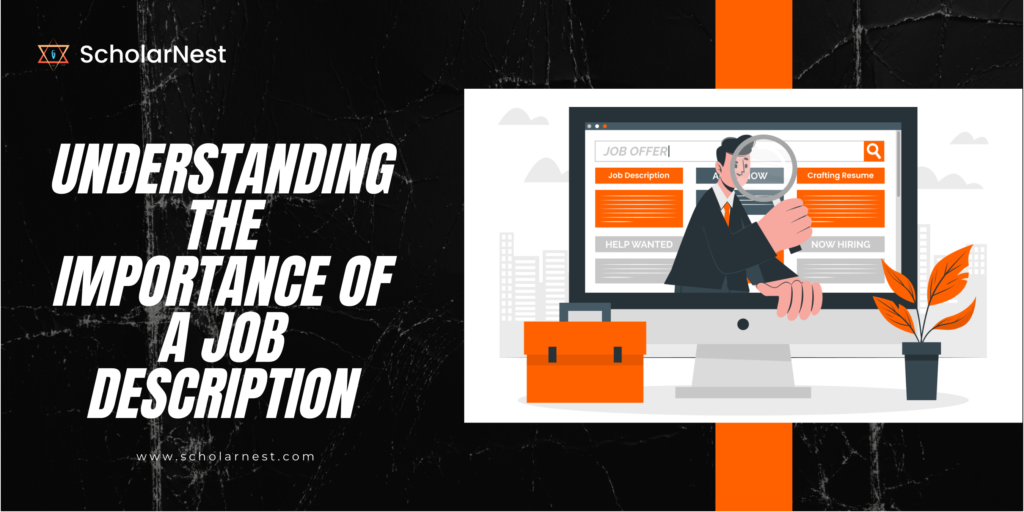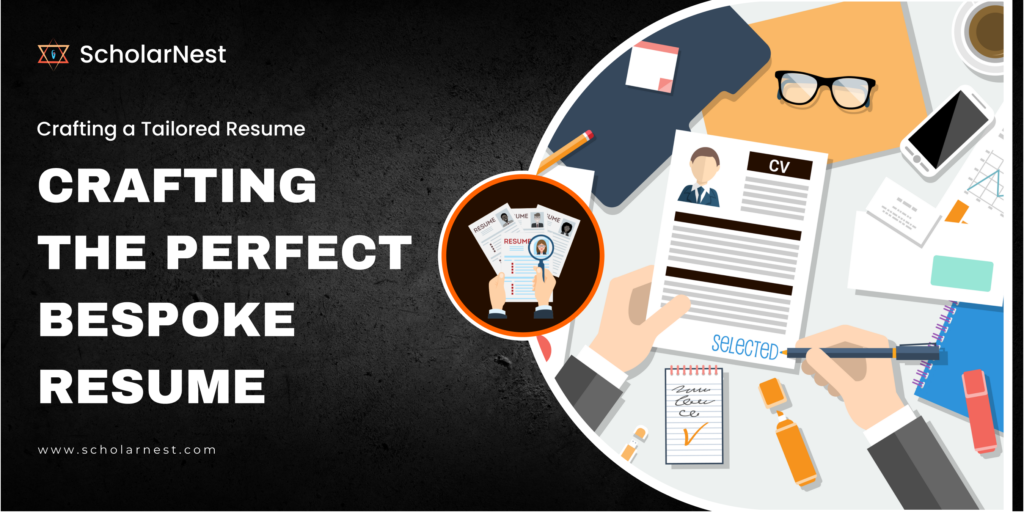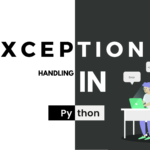
How To Make a Tailored Resume & Analyze Job Description
- ScholarNest
- November 18, 2023
- Data Engineering Resume, Resume Writing
How to Analyse a Job Description and Tailor Your Resume to Match
The needs of the workforce are ever changing, acclimatising to growing technology and performance methods. Consequently, the employers have to adapt and evolve their understanding and expectations of a job. Analysing a job description enables the employee and the employer to meet the required skill sets and criterias for a specific position. Whether you are an azure data engineer or a cybersecurity expert, job analysis is something you must be aware of. Job analysis can impact your hiring chances and even alter the negotiations made from both the ends. In this article, you will learn how to analyse a job description i.e. make a perfect job analysis and how it can affect your future career positions.
What exactly is a job analysis?
A job analysis is a process that aids you to identify and understand the job responsibilities, objectives, tasks, employability skills required and the work environment for a specific position. It is a tool that is used for creating a peerless job description- however there is much more to it. The recruitment process, if carried out smoothly, enhances your growth in the desired position and supports your long term career.
The modern work culture necessitates the expansion of the description of a job analysis. Before proceeding ahead, you must carefully understand the “must knows” about a job analysis. The current niche of job analysis encompasses the goals, skill, competencies, performance reviews, expectations and any other information that improves the employee’s mastery of the role assigned. From the point of view of the hiring managers, all these details boost the number of applications with absolute transparency, allowing them and their associated leader to hire some great skill set for the purpose. Therefore, a job analysis also implies its utilisation for a job description and how a specific role can add value to a company or a team.
Understanding the importance of a job description

If you know the importance of a job description, you will be able to analyse it in a much more advanced manner. There are certain key elements which you need to analyse and craft a bespoke resume. Job description holds every single information about the post vacancy. This is usually shared either on their website or on a social platform like LinkedIn, Shine etc. If you observe closely, the description also holds key details about the company, its establishments and the way they carry out their hiring process. Other specific requirements of the employer, if any, are also mentioned here.
First and foremost thing- you need not to go about reading every single word of a job description to analyse it. To understand it inside out, you need to assess the certain keywords and look for catch phrases. In a simple way, you need to work exactly in the way ATS(Applicant Tracking System) works on your resume.
In order to match your resume with the position requirements, you need to demonstrate the values you will bring along to the company when hired. The best shot is to make the job description your cheat sheet for cracking the right job.
How do you analyse a job description?
Now that you are well aware of what a job description is and the information it holds, it’s time to understand the key elements in it. You have to carefully read and examine the information given in these key elements. Remember, your hiring company may not mention these keywords as ‘clear headings’ but you must be cautious to understand its presence in a subtle way. You can start analysing by dividing the job description into the following heads-
-
The job title:
One of the most fundamental things to look for is what the job title says. Although it’s a small piece of information, it can really help you to know what you are looking for in the description. In most cases, the job title matches with the job description.
-
The name of the organisation:
One of the smartest ideas is to look for the company’s name and do a quick research about it. This will give you a deeper knowledge about the company’s domains, the areas they work in and the job position you are applying for. Once you know what the company does and what they are looking for, you can curate your resume accordingly.
-
Company Profile:
A job description won’t mention the detailed information about the company. However, understanding the company profile is a must. You must know what are the growth patterns, the number of employees, the work culture and ethics pertaining to the organisation. This step is crucial in not only understanding the nature of the job you are applying for but also designing your resume according to it.
-
Nature of employment:
After the pandemic, the WFH (work from home) culture is being promoted by companies. Look for the nature of the job i.e. whether it’s a contract based, WFH, remote, hybrid or a full time opportunity.
-
Location of the work:
One of the key factors in deciding whether you need to apply for the job or not. Be cautious while choosing the job location.
-
Job Summary:
If you skip this part, you will make a huge blunder! This is where the company provides the most information about the job position and responsibilities.
-
Job skills and duties:
In majority of the job descriptions, this is clearly demarcated as a separate section. Usually the bulleted points include the skill sets, the years of experience, qualifications criteria, the duties you will perform on a daily, weekly and monthly basis.
-
Additional Qualifications:
If it is a high-end job profile, the company will surely mention the additional qualification or certifications it seeks. You must read it carefully to analyse your potential.
-
Salary:
The most obvious part. Understanding the salary being offered for the role and your personal requirements is a must. However, in most of the job descriptions, the company chooses not to disclose the salary.
-
Legal declarations:
There are certain legal disclosure requirements which you need to sign prior to joining the organisation. You should carefully read these and if not understandable, you must seek help from a legal authority to help you understand it.
-
Application process:
The concerned organisation will mention the process you need to follow in order to apply. Understand this process carefully for a hassle-free application.
Crafting the perfect bespoke resume

Having understood every nook and cranny of the job description and the keywords to look for, now it’s time to apply your knowledge to building a flourishing resume. Keep in mind the following steps to craft the perfect resume to match the job description-
-
Designing the first page of your resume
It only takes a hiring manager 10 seconds to either select or rule out your resume. The top half of your resume must contain three elementary information- your contact details, resume summary and your job experience. There are chances that the employers will read just your resume summary and job experience and proceed with your candidature. Therefore, keep it crisp, elaborative and simple to catch the employers’ eye.
-
Sync your resume with the job description
After reading the job description, ask yourself “Do I have the exact skill set and experience as asked by the hiring organisation?”. If the answer is affirmative, apply for the vacancy. Keep in mind that the language of your resume should be in sync with the language of the job description. For example, if the description has a formal tone, your resume must also have the same. If the company provides the description in a much more pepped up or casual language, keep your resume’s language casual as well.
-
Mirror the keywords and skills
Remember to include all the buzzwords, keywords and skills as mentioned in the job description. You can take words from the job positions and put them strategically in your resume. This is one of the best ways to pass the ATS. Mirror the exact words and language to make your resume stronger.
-
Stark job title
Stating the job title clearly will make it easy for your recruiters to analyse your resume. If you have held a job similar to the one being posted, mention it on the top of your experiences. Your recruiter will always try to find the similar positions which you have held in the past. And if you have never held any such post, try adding a similar experience in your resume summary.
-
Selection of your achievements and skills
While it might be tempting to mention all your achievements to decorate your resume, it can be useless most of the time. You must be very selective about what skills you have to include. Try including those which are directly related to the job position you are applying for. You can even mention the same skills as listed in the job description. Try giving more emphasis to your accomplishments rather than the job responsibilities. Make use of figures and action verbs when describing them. This will convey your leadership potential to your recruiter in a simplified manner.
-
Be truthful about what you mention
Anything that you haven’t achieved should not be mentioned on your resume. No candidate has all the skills required by a job position. Therefore, try mentioning only those skills and achievements which you have and are confident about. Your aim is to convince the recruiter that you are fit for the job rather than convincing him that you have all the skills.
Try keeping your resume brief, informative and according to what actually the employer wants to know. You are now on your way to write a perfect resume.



